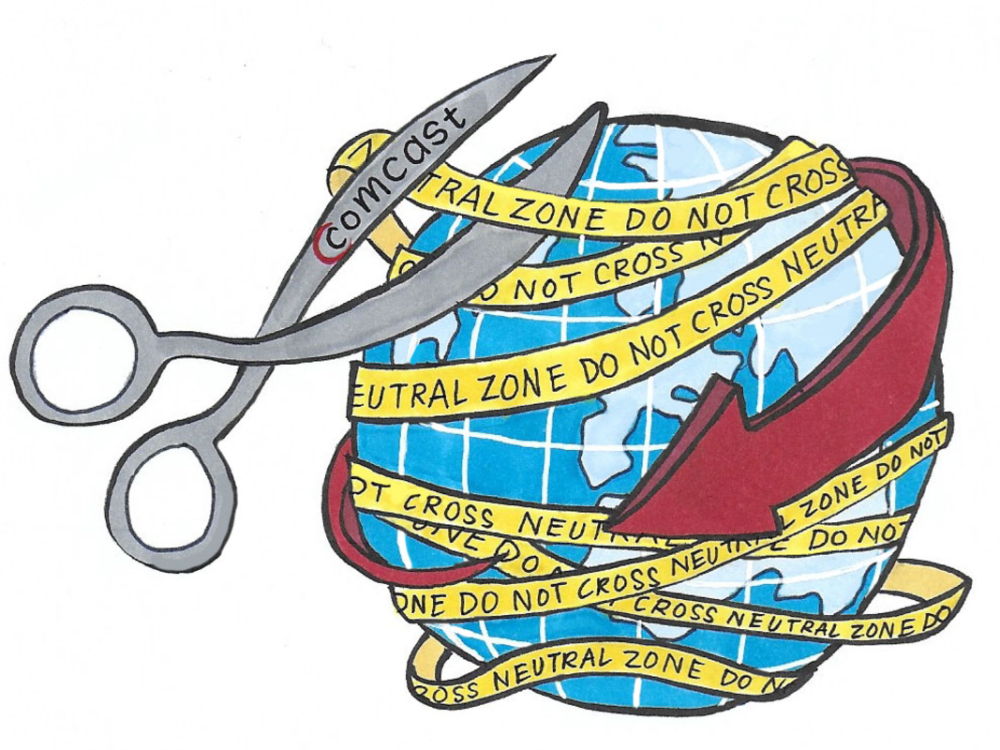Net neutrality has been a major talking point for many pundits and publications lately, and there are some who still don’t really know what it’s all about. Since its inception, the internet has been neutral. This means that, so long as you have the correct address of a page, and said page has enough servers, you should be able to access it without any outside mitigation or interference. That’s a neutral internet.
Now, let’s say a network provider, like ComCast, Rogers, or Bell, strikes a business partnership with a streaming service. Hulu, for example. Well, without a neutral internet, said network provider would be able to drastically slow down your connection to Netflix in an attempt to draw more customers to their preferred streaming site. Applied across the board, this practice, which limits the information people can access based on their ability to pay exorbitant fees, is draconian at best, and Orwellian in its censorship of information at worst.
Illustration by Amara Gelaude



